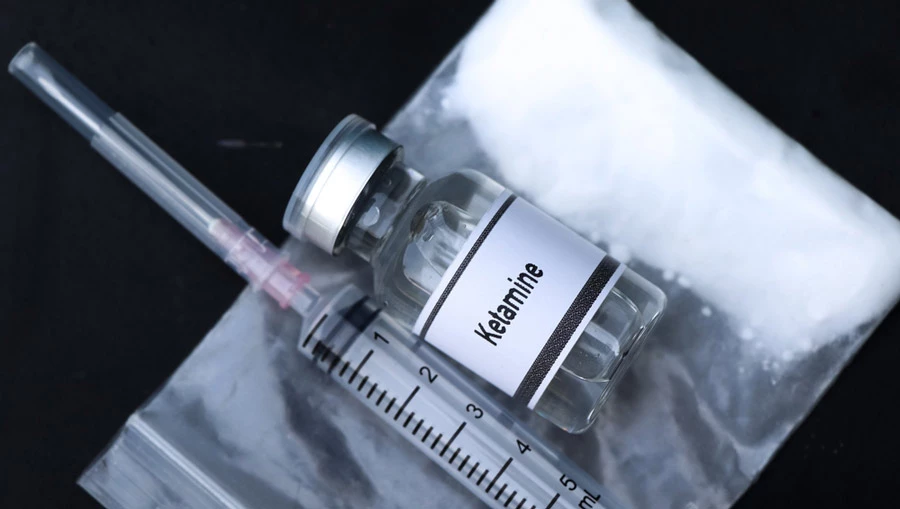Understanding the Half-Life of Dissociative Drugs
For years, ketamine abuse has been a problem in Orange County and the surrounding areas – especially in the club, rave, and neo-hippie music scenes – all of which are deeply entrenched in the local culture. However, very little is known regarding the impact of ketamine abuse, resulting in a limited number of options for ketamine addiction treatment.
Recently, ketamine use has garnered nationwide attention because of the availability of intravenous ketamine infusion therapy – a remedy for depression and pain relief that many are seeking as an alternative to traditional methods. Ketamine infusions are now being used in clinical settings for anesthesia and pain management, but they require careful monitoring and precautions to avoid potential risks, especially when combined with other substances.
But how long does ketamine stay in your system?
Despite the fact that reviews of ketamine therapy under medical supervision have been mostly favorable – is this causing long-term repercussions for the lack of awareness regarding ketamine abuse? While those who administer treatment log information and supposedly keep track of the number of times clients participate in therapy – who is to say they’re not attending multiple locations? If you are receiving a mail order prescribed Ketamine, what is the impact on dependence and addiction when unsupervised abuse occurs?
In this article, we address this issue, along with many others regarding ketamine abuse and certain strategies used to detect ketamine levels in your system that traditional drug tests aren’t capable of.
Understanding Ketamine Hydrochloride
In its ingestible form, ketamine hydrochloride, this substance is a dissociative drug reserved for animals and humans, often used for minor surgical procedures as an anesthetic to induce or maintain general anesthesia. The drug has additional medicinal uses, but prescription levels are typically fairly low, mostly due to the potential for abuse.
Those who have lost limbs are prescribed the drug off-label for “phantom pain” or the continuation of the sensation of pain at the point where the limb was lost. Despite what many people believe, ketamine does have addictive properties and causes withdrawal symptoms. Ketamine addiction is known to lead to physical withdrawal but has the greatest potential to cause psychological issues during the detox process.
The ketamine detox process varies from person to person and is largely dependent on how long ketamine has been in the system of the user. At South Shores Detox and Recovery, we offer dedicated programs with medical supervision to help you come off ‘Special K’ both comfortably and with emotional and mental health support in place. But let’s get to the meat of why you are likely reading this article:
So, how long does ketamine stay in your system, and what are the effects of long-term ingestion?
Exactly How Long Does Ketamine Stay In Your System?
The length of time for how long ketamine resides in your system – and is detected on drug tests, varies from one case to another. The primary factor influencing the length of the ketamine stay in your body is ultimately the half-life.
The half-life of any drug is usually the deciding factor when it comes to the body expelling the substance in question. However, it’s important to note, that just because the time has passed and the half-life has long expired, a drug may still be picked up on certain tests that detect ketamine. For example, the length of time for how long ketamine stays in your blood would not be the same amount of time it stays in your hair.
With no regulatory arm for these new treatments, and the already existing challenge of ketamine use and ketamine addiction – and now the availability of products like ketamine nasal spray and mail-order ketamine prescriptions – the Drug Enforcement Administration (DEA) has a growing problem on its hands.
Let’s take a look at all the factors influencing how long ketamine stays in your system after a period of ketamine abuse.
A Close Look at the Ketamine Half-Life
The half-life of ketamine is relatively short compared to other drugs, including many opioids. The half-life, or time it takes for the amount of ketamine in the body to be reduced to 50% of its initial levels – is around 3 hours. However, specific factors contribute to the exact time per person. These factors include:
- Your size and age. For those who weigh more and are considerably older in years, any substance usually takes longer to metabolize. Smaller and younger people as a whole almost universally expel substances from the body much quicker.
- This is directly linked to size and age in some cases – but not always. The faster your metabolism, the faster your body expels certain substances.
- Overall health. Your overall has a massive impact on the half-life of any substance in the body. The better your overall bill of health – liver, kidneys, and other organs – the faster the body eliminates toxins.
- Dosage amounts. Finally, the amount of ketamine your body is exposed to plays a large role. The more you ingest over a long period of time, the longer it takes your body to eliminate the byproduct.
- Use of other drugs. If you’ve been abusing other drugs, the chances are high that the metabolism period takes longer.
It’s worth noting that typically ketamine is either injected intramuscularly, intravenously, taken orally, or insufflated. If it’s IV injected, the body processes it much faster than any other method of ingestion.
Medical Uses: Treatment-Resistant Depression, Pain Relief
Ketamine has emerged as a promising treatment for individuals suffering from treatment-resistant depression and acute postoperative pain. In 2017, the FDA approved a ketamine nasal spray specifically for patients who have not responded to other depression treatments. This breakthrough has provided hope for many who struggle with severe depression, offering a new avenue for relief.
In addition to its antidepressant properties, ketamine is also utilized in pain management. It is particularly effective in managing chronic pain for patients who have not found relief through other treatments. Ketamine works by blocking NMDA receptors, which play a crucial role in the transmission of pain signals, thereby providing significant pain relief.
Ketamine’s role in acute pain management is also noteworthy. Perioperative intravenous ketamine has been shown to reduce postoperative pain and decrease the need for opioids, making it a valuable tool in surgical settings. Oral ketamine, although less commonly used due to concerns about its potential for abuse, has also been employed to manage chronic pain effectively.
Street Names and History of Ketamine
Ketamine is known by various street names, including “Special K,” “K,” “Vitamin K,” and “Cat Valium.” Its journey began in 1962 when it was first synthesized, and by 1970, it was approved for use in the United States. Initially, ketamine found extensive use in veterinary medicine and was even employed as a surgical anesthetic during the Vietnam War due to its effectiveness and rapid action.
Today, ketamine is classified as a Schedule III controlled substance by the Drug Enforcement Administration (DEA), reflecting its potential for abuse and dependence. Despite its medical benefits, the recreational use of ketamine remains a significant concern, necessitating strict regulatory measures.
A Closer Look at the Ketamine Half-Life Data
The half-life of ketamine is relatively short compared to other drugs, including many opioids. The half-life, or time it takes for the amount of ketamine in the body to be reduced to 50% of its initial levels – is around 3 hours. However, specific factors contribute to the exact time per person. These factors include:
- Your size and age. For those who weigh more and are considerably older in years, any substance usually takes longer to metabolize. Smaller and younger people as a whole almost universally expel substances from the body much quicker.
- This is directly linked to size and age in some cases – but not always. The faster your metabolism, the faster your body expels certain substances.
- Overall health. Your overall has a massive impact on the half-life of any substance in the body. The better your overall bill of health – liver, kidneys, and other organs – the faster the body eliminates toxins.
- Dosage amounts. Finally, the amount of ketamine your body is exposed to plays a large role. The more you ingest over a long period of time, the longer it takes your body to eliminate the byproduct.
- Use of other drugs. If you’ve been abusing other drugs, the chances are high that the metabolism period takes longer.
It’s worth noting that typically ketamine is either injected intramuscularly, intravenously, taken orally, or insufflated. If it’s IV injected, the body processes it much faster than any other method of ingestion. Intravenous injection leads to a rapid onset of effects within thirty seconds, contrasting it with intramuscular injections, which have a slower onset and longer duration.
How Long Does Ketamine Stay In Different Parts of the Body?
As we mentioned earlier, ketamine is detectable in the urine, hair, blood, and saliva. In this section, you’ll learn which system has the longest expulsion period regarding the drug.
Ketamine In the Bloodstream
After you ingest ketamine, it takes the body about 3 hours to reach the half-life period. Again, this depends on all of the factors mentioned above. In certain situations, ketamine may be detectable in blood tests for up to 2 weeks.
Ketamine In the Urine
Ketamine drug testing for urine may recognize the presence of the drug for up to five days. Generally, ketamine metabolites stay in the urine for 3 to 5 days. If you’ve been abusing ketamine, you can expect the following levels if you’re facing urine tests:
- Up to 24 Hours: High
- 24-48 Hours: Moderate
- 48-72 Hours: Low
- 80+ Hours: Unlikely
Ketamine In the Saliva
Although times may vary, ketamine stays in the saliva for a period of up to 16 hours. However, in some cases, the drug may be undetectable in the saliva in as little as 4 hours.
Ketamine In the Hair
Unlike urine tests and the blood test timing, looking for the presence of ketamine via a hair drug test will indicate the presence of the drug substantially longer than the detox times mentioned above. The hair test will show a positive result for up to 30 days in some instances.
This is also dependent on the amount of the drug that’s been used, along with the growth rate of the hair. The levels of ketamine detected in the hair must result in 500 pg/mg in order to produce a positive. Anything lower is considered a trace and a negative test.
The Dangers of Ketamine Accumulation
Many people automatically assume since a drug is administered under a doctor’s supervision that it’s safe by default. Opioids and occasionally some forms of ketamine are used for pain relief, and they are far from safe for long-term use – just look at the epidemic our country is currently facing. This was sparked as a result of a substance prescribed by doctors initially.
Despite the fact that medical ketamine treatment sessions may take place with several days between treatments, this doesn’t erase the fact that certain risks are still present. When you use ketamine, it’s circulated around the body to places including your brain.
Not all of the ketamine is used right away, and subsequent usage leads to larger amounts of ketamine stored in the fatty tissues that are released back into your bloodstream during long periods of time. This is what’s known as ketamine accumulation.
This is what makes using ketamine dangerous, even if you’re ingesting it as part of a medical procedure. The importance of only using ketamine under the supervision of a doctor, and adhering to strict specifications, is of the utmost importance.
If you’ve been considering ketamine treatments for pain relief or otherwise, sticking to the following rules will help you avoid psychological dependence, and ultimately, physical dependence. Ketamine can provide relief for treatment-resistant depression in some instances, but it’s vital that you’re aware of the correct steps to take to avoid pitfalls.
Risks of Ketamine Overdose
A ketamine overdose can be a life-threatening situation that demands immediate medical intervention. Recognizing the signs of an overdose is crucial for timely action. Symptoms of a ketamine overdose include respiratory depression, which can severely impair breathing, as well as an increased heart rate and blood pressure. Altered mental status, such as confusion or extreme agitation, is also common.
In severe cases, a ketamine overdose can lead to coma, seizures, and even death. The risk of overdose underscores the importance of using ketamine strictly under medical supervision and adhering to prescribed dosages.
Signs of Ketamine Abuse
Identifying ketamine abuse early can prevent serious health consequences. Some common signs of ketamine abuse include an increased tolerance to the drug, meaning higher doses are needed to achieve the same effects. Withdrawal symptoms, such as anxiety and agitation, can occur when the drug is stopped.
Individuals abusing ketamine may neglect their responsibilities and relationships, continuing to use the drug despite negative consequences. Secretive behavior and hiding drug use are also red flags. Changes in mood and behavior, such as irritability and aggression, are often observed in those abusing ketamine.
Chronic ketamine abuse can lead to severe health issues, including liver and urinary toxicity, respiratory depression, and an increased risk of overdose. Recognizing these signs and seeking help early can mitigate the long-term damage caused by ketamine abuse.
Your Doctor Should Supervise for Multiple Effects
The physician administering your ketamine treatment should be mindful of several issues to determine whether ketamine treatments are potentially helpful. First, your physical reaction to the drug must be noted. In some cases, unaccounted-for physical effects can manifest, including a spike in blood pressure or heart rate that can be deadly.
Next, psychological results must be tracked. Ketamine can result in hallucinations or a feeling of disassociating, or disconnecting from the real world. Even in medical settings, this is not preventable at times. During and after use, your physician should constantly stay vigilant. On the same note, you must also be communicative regarding how you’re feeling, or if you believe anything adverse may be brewing in the mind or body.
Other mild symptoms like nausea or vomiting may also happen as a result of treatment. However, these events happening at a high rate aren’t normal, and treatment should be halted immediately if this occurs.
Administering ketamine is more than just hooking up a client to an IV and letting the drug circulate through the body. It’s also the doctors just to:
- Provide moral support
- Provide physical support
- Track all progress
- Educate clients about the risk
- Notify the client of how ketamine interacts with body systems and how long it stays in the body and system
Withdrawal and Side Effects from Ketamine Use
Ketamine withdrawal can be challenging, with symptoms manifesting when the drug is stopped or its dosage is reduced. Common withdrawal symptoms include anxiety, agitation, insomnia, and vivid dreams. Physical symptoms such as increased heart rate and blood pressure, nausea, vomiting, headaches, and muscle pain are also prevalent.
In addition to withdrawal symptoms, ketamine use can cause several side effects. These include increased heart rate and blood pressure, respiratory depression, nausea, vomiting, headaches, muscle pain, and mood changes. Hallucinations and dissociative effects are also common, particularly with higher doses.
Long-term ketamine use can result in serious health consequences, including liver and urinary toxicity, respiratory depression, and an increased risk of overdose. Understanding these risks is essential for anyone considering or currently using ketamine, whether for medical or recreational purposes.
Get Ketamine Detox and Rehab Support at South Shores
If you or someone you love suffers from ketamine addiction – whether it’s a result of recreational use or treatment for depression or pain gone awry, South Shores Recovery can help. Because of our experiences with ketamine and its long history in Orange County, we feel as if we have a leg up against other treatment providers.
This issue is far from new, and we are constantly active in administering tried and true therapies that are known to work and provide relief, in addition to always staying on the cutting edge of newer options.
For more information, contact a member of our admissions team today, and get options for breaking Ketamine dependence now!




